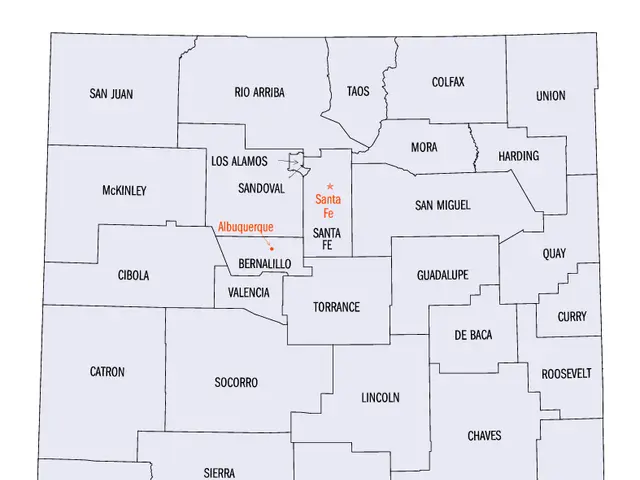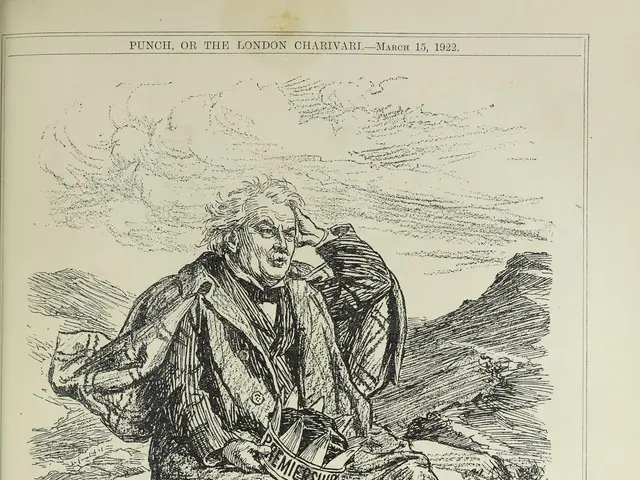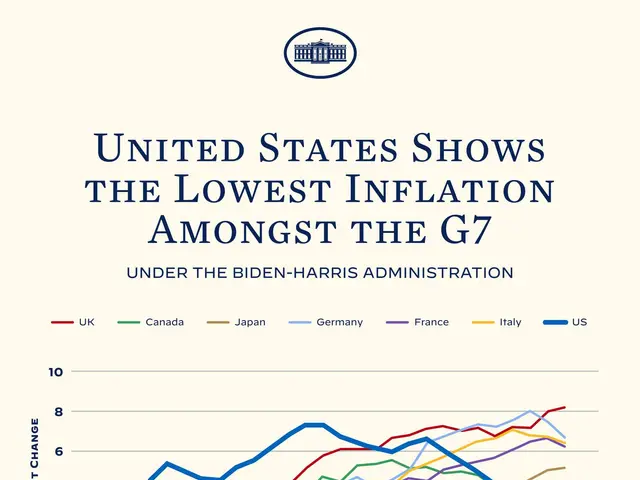Lawmakers in Texas seek to reduce homeowners' insurance premiums, facing limited solutions.
TEXAS - Texas lawmakers are taking action to ease homeowners' skyrocketing insurance bills, acknowledging that there's only so much they can do to tackle costs.
Legislators have thrown their support behind bills that restrict insurance companies from drastic rate hikes and empower homeowners to make their homes more insurable. They've also aimed to compel insurers to be transparent with homeowners regarding policy cancellations or denials.
Texans pay some of the highest insurance premiums in the nation. In 2024, homeowners' insurance rates jumped nearly 19%, decreasing slightly from over 21% the previous year, according to Texas Department of Insurance records.
Several factors have led to surging insurance costs in recent years, insurance experts claim. For instance, Texas' population boom has led to rising property values and increased costs to insure homes and businesses. Climate change has intensified severe weather events like hailstorms, hurricanes, and winter freezes, making such events more common. As the state's population expands, more people move into the path of severe weather's destructive path. Higher labor and construction material costs have also driven up the cost of repairing storm-damaged properties.
Purchasing homeowners insurance is a necessity, not an option, as lenders require homebuyers to secure it to obtain a mortgage. Even if a home is paid off, insurance experts advise against going without coverage in case disaster strikes.
Despite lawmakers' efforts to address the insurance crisis, they recognize many of the factors behind insurance costs are out of their control.
[A potential break for Texas homeowners in the form of reduced property tax bills courtesy of Republican lawmakers]
"We can't control the weather, we can't control inflation," state Rep. Tom Oliverson—who spearheaded one such proposal—told a House committee last month. "I can't control the availability of building materials, and I can't control how the houses that are already built were built, what standard they were built to."
In the pursuit of checking excessive insurance costs without scaring off insurers and triggering widespread market collapse, one proposal by state Sen. Charles Schwertner seeks to arm policyholders with a shield against excessive rate increases. In Texas, insurers can file proposed rate increases with the Texas Department of Insurance (TDI) and implement the new rates immediately. If the agency later deems the increase unjustified, it can reject it.
Senate Bill 1643, which sailed through the Senate but is currently awaiting a hearing in the House, would force the TDI to approve any rate increase above 10% before it can take effect.
"When companies make substantial rate changes, it's crucial that the Legislature ensures the regulatory environment is affording adequate scrutiny to these filings," Schwertner said prior to a Senate vote on the bill in April.
Yet, the insurance industry has voiced concerns about capping rate increases. Beaman Floyd, who heads the Texas Coalition for Affordable Insurance Solutions (TCIS), representing major insurance companies like Allstate, State Farm, and USAA, contends that limiting rate increases doesn't address the root causes of the escalating cost of insurance. Insurers may opt for smaller rate increases to avoid potential TDI disapproval, leaving them in hot water financially, which could lead to policy cancellations because insurers can no longer bear the coverage costs.
"That's not good for consumers," Floyd said.
Requiring the TDI to vet rate increases above 10% does not guarantee automatic rejection, Schwertner pointed out. The bill aims merely to inhibit unchecked rate filing and review practices, he said.
Consumer advocates argue that the state's current system lacks a real check on insurers—a gap that Schwertner's proposal could potentially fill. However, they express worries that insurers will circumvent the purpose of the law by submitting multiple rate increases, a practice the bill does not cap. Ware Wendell, executive director of the consumer rights group Texas Watch, proposed that an insurer might issue a 9% increase one month and solicit the same increase the following month.
"Insurance companies could pick at it," Wendell said.
The TDI would still require insurers to justify their rate increases even if multiple increases were filed annually, Schwertner explained. If justifications proved insufficient, the state could still reject the increase, he said.
Both insurers and consumer groups agree on specific proposals. House Bill 1576, introduced by Oliverson, suggests creating a state grant program to fund retrofitting homes to withstand hurricanes and windstorms. The idea is that insurance providers would be more inclined to insure a hardened home, lowering the insurance cost for that home.
"It's a unique way for us to essentially drive down the cost of insurance by encouraging folks - not mandating, this isn't a mandate - to rebuild their home to a higher standard that experiences less risk and less cost," Oliverson told the House Insurance Committee in April.
The bill sailed through the House late last month. The Senate has yet to take action. The total funding for the program depends on the bill being approved by both chambers and the outcome of budget negotiations between the House and Senate.
Lawmakers are considering other ideas as well. The Texas Department of Insurance is overseen by a single commissioner appointed by the governor. Schwertner's proposal would expand that to three commissioners, one of whom must have expertise in consumer advocacy. Lawmakers have also advanced bills to stop insurers from requiring consumers seeking homeowners insurance to also buy auto insurance, and to mandate that insurers disclose why they might deny homeowners coverage or cancel their policies.
Disclosure: TCIS and USAA have been financial supporters of The Texas Tribune, a nonprofit, nonpartisan news organization that is funded in part by donations from members, foundations, and corporate sponsors. Financial supporters play no role in the Tribune's journalism. Find a complete list of them here.
This article originally appeared in The Texas Tribune at **https://www.texastribune.org/2025/05/09/texas-legislature-homeowners-insurance/**.
The Texas Tribune is a member-supported, nonpartisan newsroom informing and engaging Texans on state politics and policy. Find more at texastribune.org.
Enrichment Data:
Overall:
Several proposed measures and actions are under consideration or implementation in Texas to combat rising homeowners insurance costs, reflecting a mix of regulatory oversight, legislative changes, and consumer protections.
Regulatory Oversight and Rate Approval
- Rate Hike Approval Requirement: Texas lawmakers are considering proposals that would require insurance companies to secure approval from the Texas Department of Insurance (TDI) before instating rate hikes[1][2]. Some proposals advocate that the state grant power to TDI to assess insurance rates exclusively[3].
- Structural Changes at TDI: The Senate is also considering bills to transition TDI from a single commissioner to a three-commissioner panel[2]. These changes aim to enhance the agency’s effectiveness given the scale of the insurance market it regulates[3].
Property Tax Relief and Homestead Exemptions
- Increased Homestead Exemptions: Recent legislation (SB 23 and SB 4) has raised the homestead exemption for all homeowners by $40,000, totaling $140,000, and by $60,000 for seniors (aged 65+) or those with disabilities, reaching $200,000. These changes, along with ongoing tax compression efforts, are expected to lower property tax burdens and indirectly reduce overall housing costs[2][3].
- Seniors and Disabled Benefits: The newly extended exemptions will result in many seniors paying absolutely no school maintenance and operation taxes, a significant portion of property tax bills[3].
Insurance Product and Deductible Adjustments
- FAIR Plan Rate Changes: The TDI recently approved rate changes for the FAIR Plan, effective August 1, 2025. These changes include new deductible options and separate deductible credits for wind/hail and other perils, with the aim of providing risk-based pricing options for consumers[4].
- Deductible Options: The TDI has requested that the FAIR Plan submit detailed proposals for additional deductible options, with the potential to offer consumers further cost savings in exchange for higher out-of-pocket expenses in case of claims[4].
External Factors Impacting Premiums
- Tariff Effects: Proposed tariffs (such as those discussed during the Trump administration and again under examination in 2025) are acknowledged as possible contributors to higher insurance premiums, although these are out of the control of state regulatory efforts[1][5].
Effectiveness of Proposals
- Rate Regulation: Requiring state approval for substantial rate increases may slow the growth of premiums and offer greater transparency and consumer protection. Nevertheless, the long-term effectiveness hinges on diligent enforcement and the ability of regulators to balance insurer solvency with affordability[1][3].
- Tax Relief: Increased homestead exemptions and tax compression help lessen property tax burdens, particularly for vulnerable populations, though they do not directly address the root causes of rising insurance costs[2][3].
- Product Flexibility: offering more deductible options and risk-based pricing may help consumers find lower premiums, though it could result in higher out-of-pocket expenses in the event of claims[4].
Summary Table
| Proposal/Change | Target Impact | Effectiveness ||----------------------------------------|-------------------------------|---------------------------------------------|| Rate hike approval requirement | Slow down, transparent rate changes | Potentially effective if enforced || Three-commissioner panel at TDI | Improved oversight/responsiveness | Expected to improve agency function || Increased homestead exemptions | Lower property taxes | Significant savings for seniors/disabled || Flexible deductible options (FAIR Plan)| Lower premiums, higher risk | Effective for cost-conscious consumers || Tariff regulation (external) | N/A (increases costs) | Not addressed by state proposals |
- The insurance industry in Texas has expressed concerns about proposals that aim to cap rate increases, as limiting rate increases might not address the root causes of escalating insurance costs.
- Texas lawmakers are considering expanding the Texas Department of Insurance (TDI) from a single commissioner to a three-commissioner panel, with one commissioner having expertise in consumer advocacy.
- The Texas Legislature is also advancing bills to stop insurers from requiring consumers seeking homeowners insurance to also buy auto insurance.
- A proposed measure aims to require the TDI to approve any rate increase above 10% before it can take effect, in an attempt to inhibit unchecked rate filing and review practices.
- In the news, consumer advocates argue that the state's current system lacks a real check on insurers, and Senate Bill 1643 could potentially fill this gap.
- Some Texas lawmakers are supporting bills that provide for a state grant program to fund retrofitting homes to withstand hurricanes and windstorms, as insurance providers might be more inclined to insure a hardened home, lowering the insurance cost for that home.




